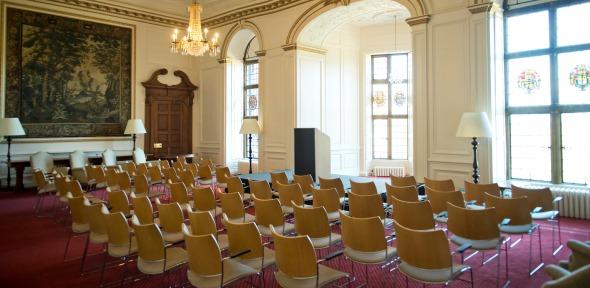Institute of Continuing Education (ICE)

Come along to one of our many public lectures and Topical Talks throughout the year. These talks are given by leading experts from the University of Cambridge and beyond, and are an important part of our commitment to public engagement. Learn more about a new subject and join the discussion.
Dr Joe Reed will be in conversation with fellow ICE creative writing tutor Dr Alycia Pirmohamed about his new novel, Terrestrial History in this free Zoom event on Tuesday, 12 August 2025, 7pm,...
Dr Yvonne Battle-Felton will be in conversation with Dr Midge Gillies about her new book, Atlantic Furies in this free Zoom event on Thursday 23 October, 7-8pm, GMT.
Midge will talk about...
Creative writing tutor Dr Lucy Durneen will be in conversation with Julian Hoffman in this free Zoom event on Tuesday, 16 December, 7-8pm, GMT.
Julian was born in the northeast of England...
The Institute of...
Professor Alison Sinclair, Professor of Modern Spanish Literature and Intellectual History, explores Spanish and English popular literature of the 19th century, and how this allows us to think about how we engage with victims, perpetrators, those who lament (or moan) and those who are braggarts.
Professor Stephen Connor, Grace 2 Professor of English, discusses the ways in which literary writers over the last century, including Lewis Carroll, James Joyce and Samuel Beckett, have approached and sometimes embraced mathematical operations in their work, often through reflections on probability.
Eben Upton, one of the creators of the Raspberry Pi, explains why he set out to design a computer so affordable that every child in Britain could have one, and discusses the staggering response to the Raspberry Pi.
The Institute of Continuing Education (ICE) will be taking part in the Cambridge Science Festival in 2013 with a programme of free talks at Madingley Hall on Sunday 17 March 2013.
In this talk, based on the ten-year research she undertook for new book Darwin's Ghosts: In Search of the First Evolutionists, novelist and historian of science Professor Rebecca Stott takes us back in time to examine the lives and work of those earlier thinkers who had eluded Darwin.
This lecture deals with whether philosophy is aptly viewed as a science. Professor Colin McGinn suggests that although philosophy is a priori conceptual analysis it is still a science - a formal science. Moreover, it can be described as empirical, natural, experimental science.
The world’s governments failed to meet their pledge of reducing the rate of biodiversity loss by 2010. Wild populations, their habitats, and the benefits they provide for people, are continuing to decline. But is the situation hopeless? In this talk, Professor Andrew Balmford examines a series of case studies where things are getting better rather than worse.